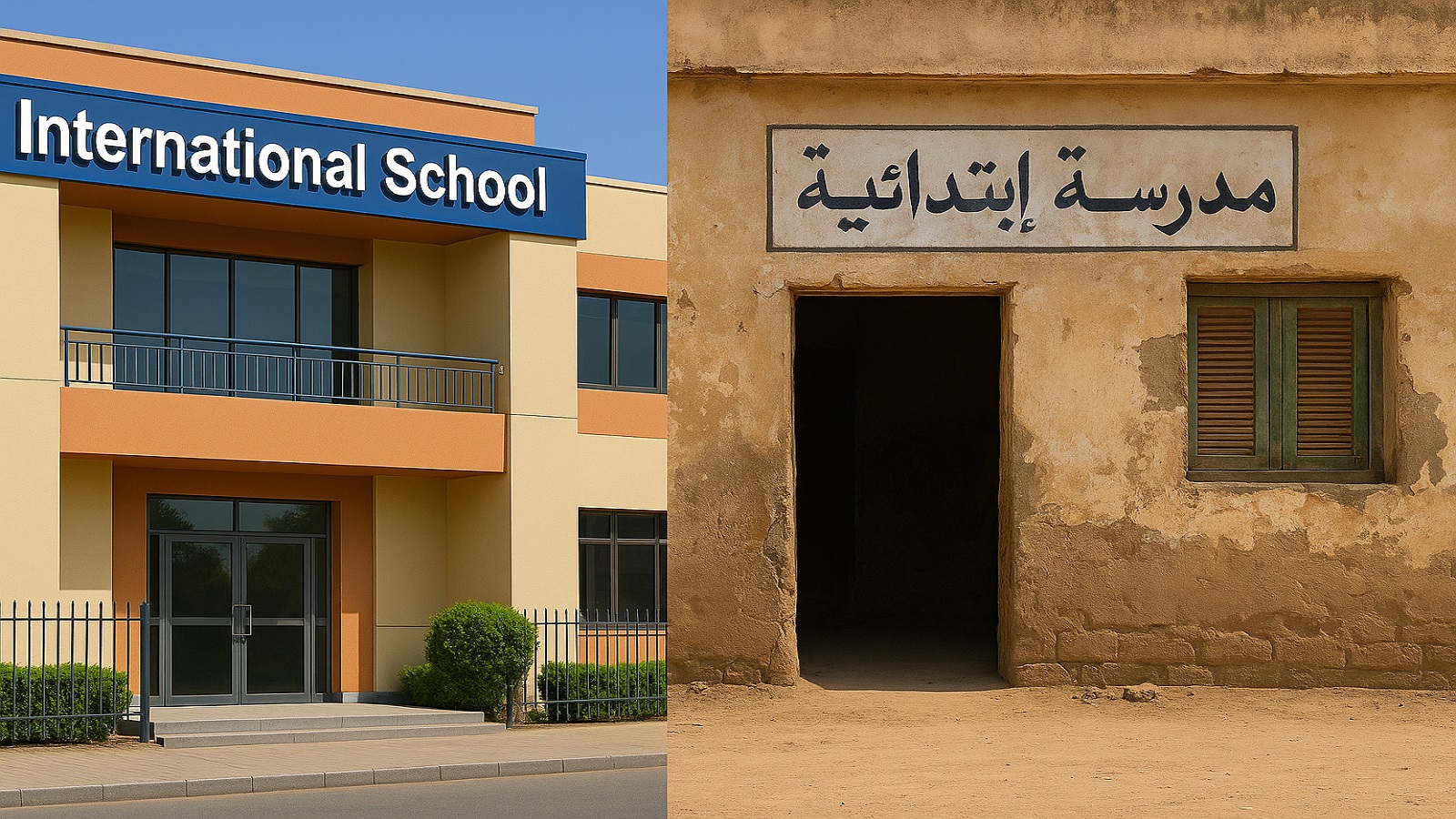The New Elite in Egypt
Al-Masry Al-Youm, Egypt, August 14
Until the early 1990s, the upper echelon of Egyptian society largely emerged from the public school system. Ministers, doctors, engineers, diplomats, and countless other professionals began their journeys in village and small-town schools before moving on to public universities.
Today, however, the equation has shifted dramatically. Although precise studies and accurate statistics remain scarce, it is clear that graduates of private institutions—especially international schools—have risen to form Egypt’s new elite. The mere mention of such a school on a résumé can tip the balance in a young person’s favor, providing them with a decisive edge over their peers.
Many jobs now demand proficiency in a foreign language, a requirement that leaves the majority of public school graduates—even those with advanced degrees from public universities—shut out from these opportunities. English, in particular, has become the gatekeeper of opportunity. If one’s English reflects the colloquial version taught in government schools, career prospects are stunted, no matter the strength of one’s university credentials. Conversely, fluency in polished English opens doors that remain closed to the majority.
This phenomenon is not unique to Egypt. Across the globe, private schools have entrenched themselves in education systems. Roughly 17% of primary school students worldwide are enrolled in private schools, a figure that climbs to 26% at the secondary level.
Give the gift of hope
We practice what we preach:
accurate, fearless journalism. But we can't do it alone.
- On the ground in Gaza, Syria, Israel, Egypt, Pakistan, and more
- Our program trained more than 100 journalists
- Calling out fake news and reporting real facts
- On the ground in Gaza, Syria, Israel, Egypt, Pakistan, and more
- Our program trained more than 100 journalists
- Calling out fake news and reporting real facts
Join us.
Support The Media Line. Save democracy.


Yet in Britain, the percentages tell a different story. As Alastair Campbell, former communications director under Prime Minister Tony Blair, recently noted, 93% of Britons attend state schools. Still, the 7% who receive private schooling disproportionately dominate positions of power across government, the judiciary, the media, finance, and beyond.
Even though most ministers in the current Labour government hail from state schools, this does not automatically signal that Britain has achieved true meritocracy, or that social mobility ensures that anyone with talent, determination, and resilience can climb to the top. Campbell argues that private education confers an enduring advantage, positioning its graduates to occupy senior government offices and claim the lion’s share of society’s wealthiest and most prestigious roles. The so-called 7% club continues to wield vast political, cultural, and economic influence.
Workplaces, by extension, favor private school graduates. While public school and university alumni strive to adapt, they often encounter a professional environment that feels alien, marked by subtle cues of exclusion. Accents, dress, hobbies, dining habits, and even conversational styles set them apart, reinforcing a sense of division between the world they come from and the world they now inhabit.
Is this not precisely what we see in Egypt today? Increasingly, workplaces operate in English, even when serving a consumer base that is overwhelmingly Arabic-speaking. Sectors ranging from real estate to telecommunications, banking, and even hospitality package themselves as extensions of international firms, though their foundations remain deeply Egyptian. The cultural and social norms of these environments diverge sharply from those of the communities surrounding them.
If Egypt is to achieve genuine social mobility, the graduates of its public schools—those scattered across its countless towns and villages—must be granted real access to elite positions. It should never be enough for someone to simply wave the credential of a private or foreign school as a passport to privilege. Equity demands more. The path to true mobility begins when opportunity is earned, not through background or accent but through merit, commitment, and ability.
Abdullah Abdul Salam (translated by Asaf Zilberfarb)

